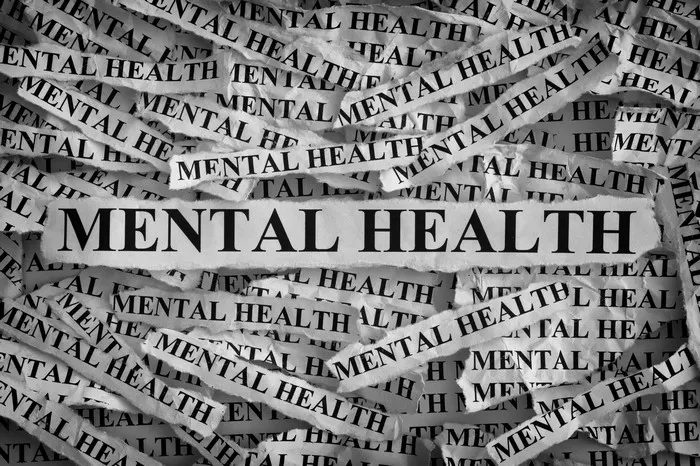In an increasingly complex and stressful world, mental health counselors play a pivotal role in supporting individuals to navigate their emotional and psychological challenges. As trained professionals, mental health counselors employ a variety of therapeutic techniques and interventions to help clients develop coping skills, enhance self-awareness, and ultimately achieve better mental well-being. This article explores the multifaceted role of mental health counselors, outlining the range of services they provide and the strategies they employ to facilitate positive change in their clients’ lives.
Understanding the Role
Definition and Scope
Mental health counseling encompasses a broad range of services aimed at promoting mental wellness and treating psychological distress. Mental health counselors work with individuals, couples, families, and groups to address issues such as anxiety, depression, trauma, addiction, relationship problems, and more. Their role involves assessing clients’ needs, providing psychoeducation, offering emotional support, and guiding clients through the process of self-exploration and growth.
Professional Responsibilities
As licensed professionals, mental health counselors adhere to ethical guidelines and standards of practice established by professional organizations such as the American Counseling Association (ACA) and the National Board for Certified Counselors (NBCC). They are committed to upholding principles of confidentiality, cultural competence, and client autonomy while providing competent and compassionate care to their clients.
Collaborative Approach
Mental health counselors often work collaboratively with other healthcare professionals, such as psychiatrists, psychologists, social workers, and primary care physicians, to ensure comprehensive care for their clients. This interdisciplinary approach allows for a holistic understanding of clients’ needs and facilitates coordinated treatment planning and referrals when necessary.
Providing Assessment and Diagnosis
Initial Assessment
One of the primary roles of a mental health counselor is to conduct thorough assessments to understand clients’ presenting concerns, personal history, strengths, and resources. Through interviews, standardized assessment tools, and observation, counselors gather information to formulate a comprehensive understanding of clients’ mental health needs.
Differential Diagnosis
While mental health counselors are not typically authorized to diagnose mental health disorders in the same way as psychiatrists or clinical psychologists, they are trained to recognize symptoms and patterns of behavior indicative of various mental health conditions. By collaborating with other professionals and consulting diagnostic manuals such as the Diagnostic and Statistical Manual of Mental Disorders (DSM-5), counselors can provide clients with appropriate referrals and treatment recommendations.
Culturally Competent Assessment
Cultural competence is essential in conducting assessments that are sensitive to clients’ cultural backgrounds, beliefs, and values. Mental health counselors strive to understand the impact of culture on clients’ experiences of mental health and tailor their assessment approaches accordingly, avoiding bias and promoting inclusivity.
Implementing Evidence-Based Interventions
Psychotherapy Techniques
Mental health counselors utilize a variety of evidence-based psychotherapy techniques to help clients address their mental health concerns and achieve therapeutic goals. Cognitive-behavioral therapy (CBT), dialectical behavior therapy (DBT), psychodynamic therapy, and mindfulness-based interventions are among the approaches commonly employed by counselors.
Skill-Building Exercises
In addition to traditional talk therapy, mental health counselors often incorporate skill-building exercises and behavioral interventions into their sessions. These may include relaxation techniques, stress management strategies, assertiveness training, communication skills development, and problem-solving exercises, aimed at enhancing clients’ coping skills and resilience.
Trauma-Informed Care
For clients who have experienced trauma, mental health counselors provide trauma-informed care, recognizing the impact of past traumatic experiences on clients’ mental health and well-being. Trauma-focused interventions such as Eye Movement Desensitization and Reprocessing (EMDR) and narrative therapy help clients process and integrate their traumatic memories in a safe and supportive environment.
Supporting Recovery and Resilience
Psychoeducation
Empowering clients with knowledge about mental health, coping strategies, and available resources is an essential aspect of a mental health counselor’s role. Through psychoeducation, counselors help clients develop a deeper understanding of their symptoms, triggers, and treatment options, enabling them to make informed decisions about their care.
Relapse Prevention
In cases where clients are managing chronic mental health conditions or recovering from substance abuse, mental health counselors assist in developing relapse prevention plans. These plans typically involve identifying triggers, implementing coping strategies, building support networks, and accessing ongoing care to minimize the risk of relapse and maintain long-term recovery.
Strengths-Based Approach
Central to the counseling process is a strengths-based approach that focuses on clients’ assets, resilience, and capacity for growth. Mental health counselors help clients recognize and leverage their strengths to overcome challenges, build confidence, and foster a sense of empowerment in their journey towards mental wellness.
Promoting Advocacy and Social Change
Advocacy for Clients
Mental health counselors advocate for their clients’ rights and needs within various systems, including healthcare, education, employment, and social services. Whether advocating for access to mental health services, accommodations in academic or workplace settings, or policy changes to promote mental health parity, counselors play a vital role in amplifying clients’ voices and addressing systemic barriers to care.
Community Outreach
Beyond individual counseling sessions, mental health counselors engage in community outreach efforts to raise awareness about mental health issues, reduce stigma, and promote mental wellness. This may involve conducting workshops, participating in public speaking events, collaborating with community organizations, and providing resources to underserved populations.
Social Justice Initiatives
Recognizing the interconnectedness of mental health and social justice, counselors advocate for systemic changes to address inequities and disparities that contribute to mental health challenges. This may include advocating for policies that address poverty, racism, sexism, homophobia, transphobia, ableism, and other forms of discrimination that impact individuals’ mental well-being.
Conclusion
In conclusion, mental health counselors play a critical role in supporting individuals’ mental health and well-being through assessment, intervention, advocacy, and empowerment. By employing a range of therapeutic techniques, collaborating with other professionals, and advocating for systemic change, counselors help clients navigate their mental health challenges and lead fulfilling lives. As society increasingly recognizes the importance of mental health, the role of mental health counselors will continue to evolve and expand, contributing to a healthier and more resilient population.
[inline_related_posts title=”You Might Be Interested In” title_align=”left” style=”list” number=”6″ align=”none” ids=”6474,6471,6181″ by=”categories” orderby=”rand” order=”DESC” hide_thumb=”no” thumb_right=”no” views=”no” date=”yes” grid_columns=”2″ post_type=”” tax=””]
































